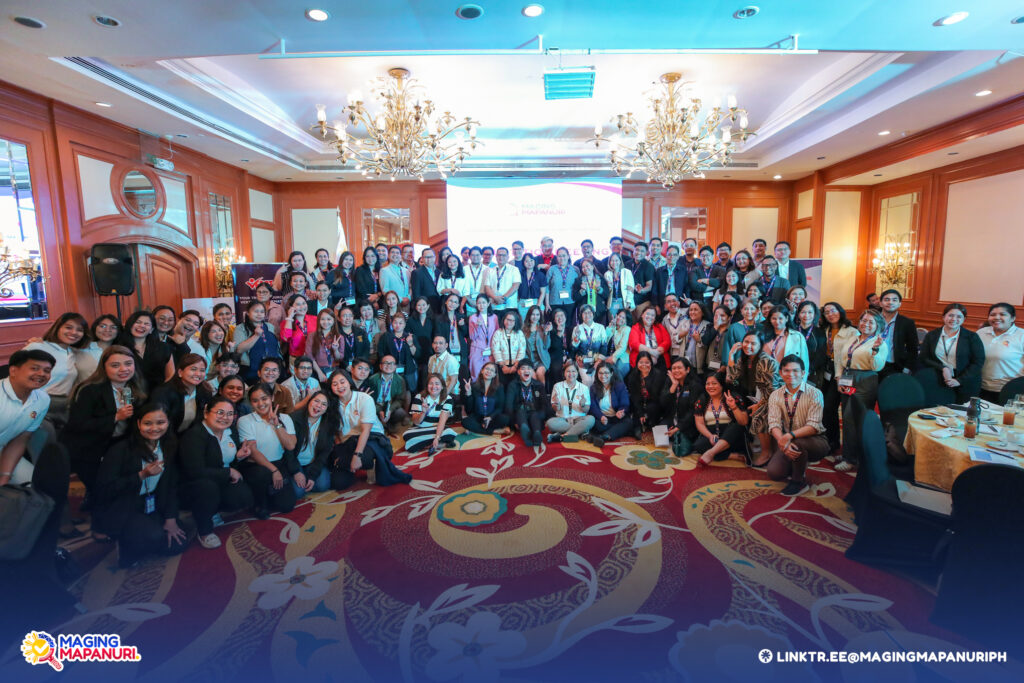The Presidential Communications Office (PCO) marked a significant step in fighting misinformation and promoting responsible media use with the launch of the Media and Information Literacy (MIL) Framework. This milestone event, held on November 5, 2024, brought together key voices from government, academia, media, technology, and civil society to explore strategies to enhance media literacy across the Philippines.
The MIL Framework was developed in collaboration with experienced practitioners and aims to guide national efforts in promoting media literacy across different sectors. Taking place shortly after Global MIL Week, the meeting’s goals included identifying MIL competencies, mapping current initiatives, and building a strong, coordinated approach to advance MIL in the country.
Senior Undersecretary Emerald Ridao underscored the unique collaboration between the government, private sector, and civil society, recognizing its power to strengthen communities across the Philippines.
“In the past, there was a sense of us and them, with the private sector separate from the government. Today, we’re working together toward the same goals. This framework represents our united effort to promote media literacy for all Filipinos, not just in metro areas but across the provinces,” Ridao stated.
The successful development of the MIL Framework was led by PCO and a working group of MIL advocates, including Melinda Quiñones of MIL for ASEAN Network, Paolo Ordonio from Break The Fake Movement, and Marlon Nombrado of Out of the Box. The consultation session concluded with an open forum, where participants shared valuable insights and offered recommendations to strengthen the initiative.
Stakeholders highlighted that media literacy must go beyond basic skills, aiming instead for a deeper understanding of how media content is created and shared. The discussion pointed to the importance of teaching online safety, digital citizenship, and media analysis early on to develop critical thinking skills.
As the Philippines prepares for elections, many emphasized the need for cooperation between the government and private sector to combat misinformation, backed by legal frameworks that address cybercrimes and protect vulnerable groups.
Teachers were recognized as essential to embedding MIL competencies into the education system, which is vital for fostering critical thinking and promoting values of digital integrity and social responsibility among youth.
MIL in the Philippine Context: Key Insights from a National Survey
Professor Irish Jane Talusan from the University of the Philippines College of Communication highlighted key challenges in implementing Media and Information Literacy (MIL) both globally and in the Philippines, including curriculum overload, insufficient teacher training, and limited research. She emphasized the right to information, describing it as a human right, and advocated for a “whole-nation approach” to MIL that involves government, educators, and citizens working together to integrate media literacy across society.
“The first strategy for that would really be a whole-nation approach, meaning the key will always be the stakeholders now, and that’s us. Eventually, this is in the early 2000s to integrate, our society is largely driven by information, and information is a human right,” Talusan said.
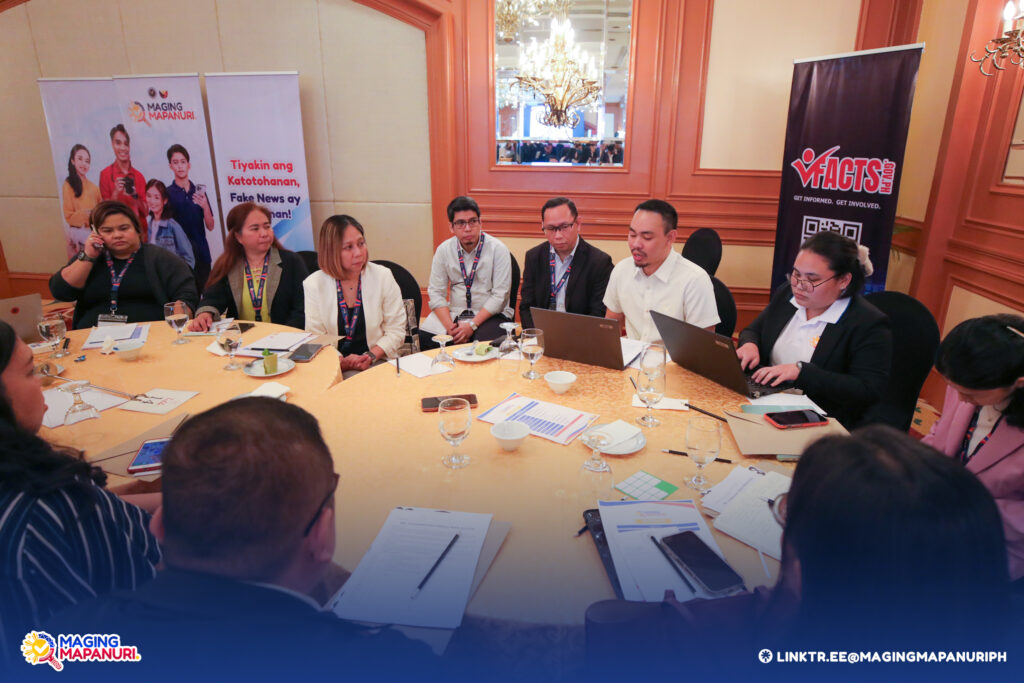
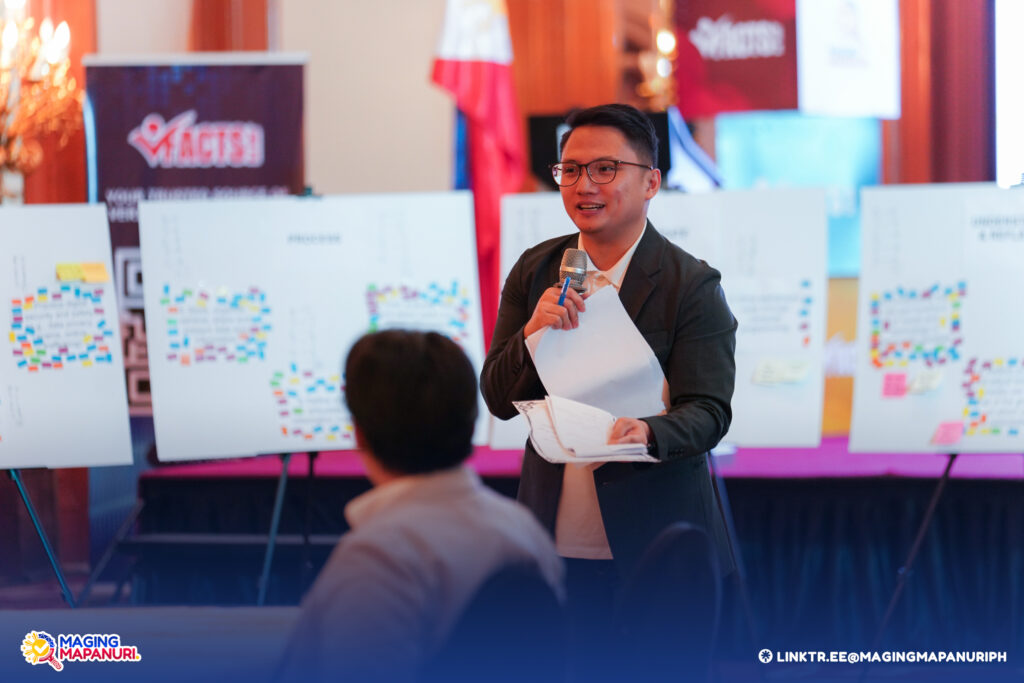
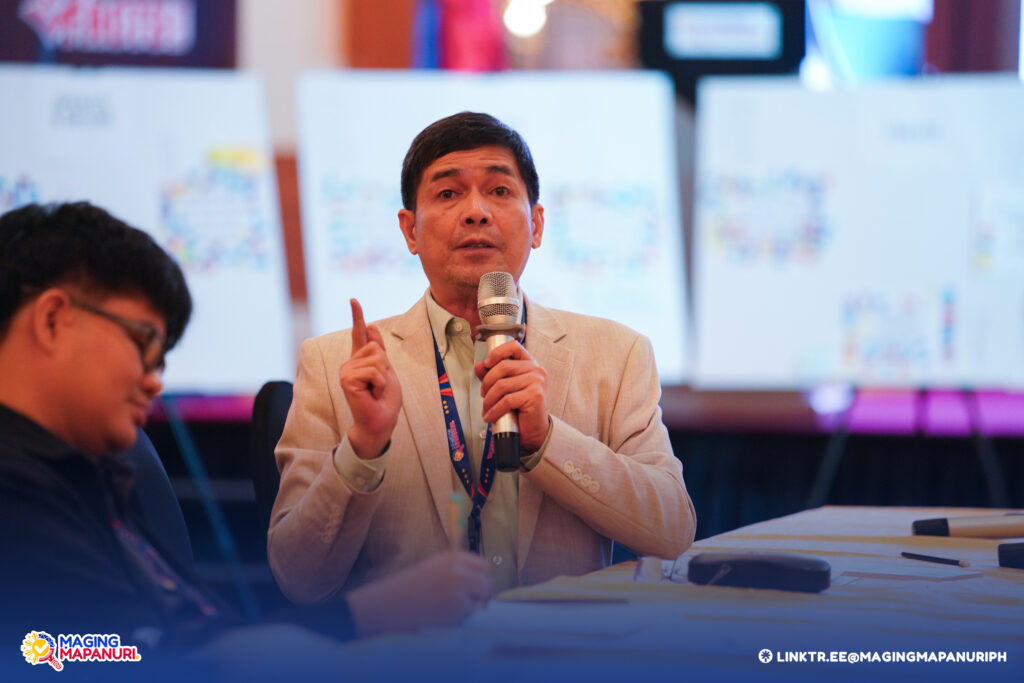
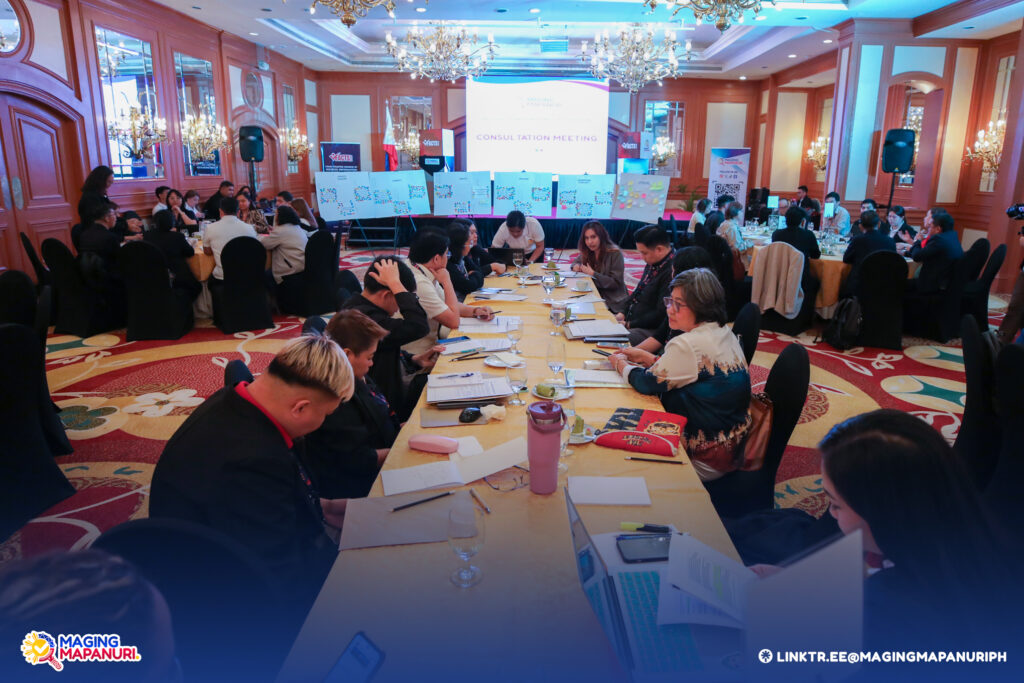
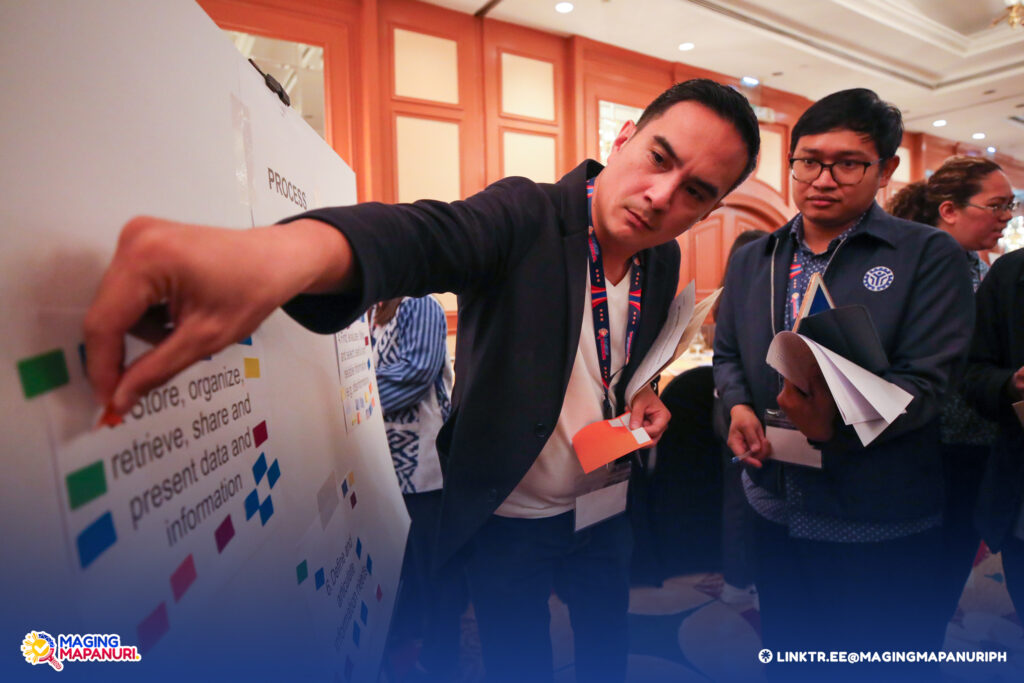
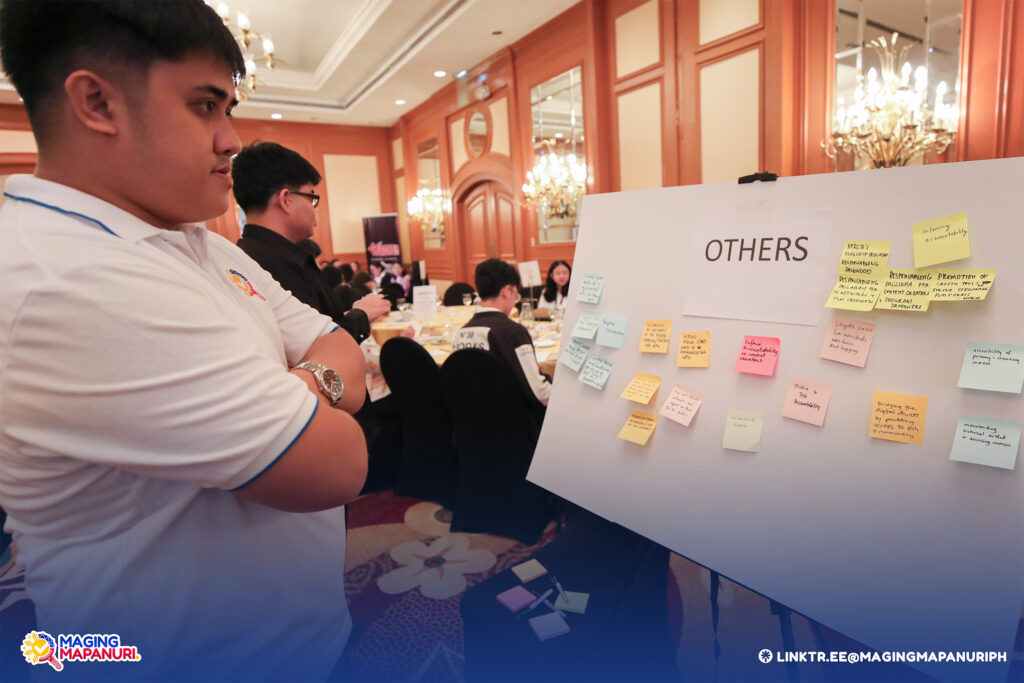
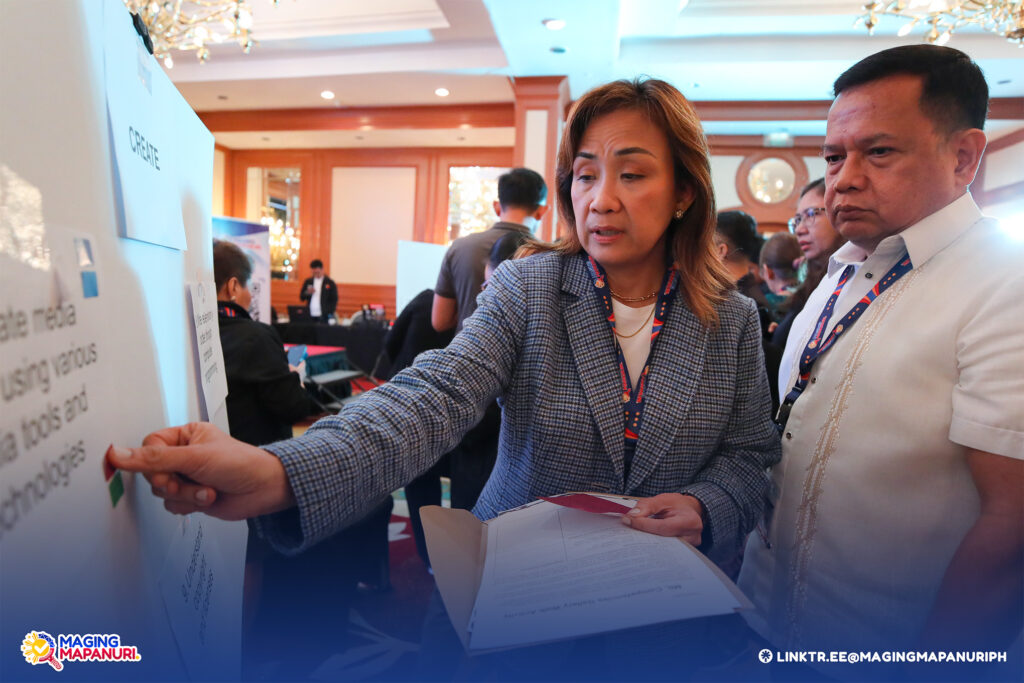
Talusan also stressed the importance of clearly defining MIL to guide effective strategies tailored to the Filipino context.
“If the first media education was about mass media, television, radio, the information was integrated. That is why media and information literacy is under the premise that information is a basic right, and our society must need to have citizens who can navigate information,” she emphasized.
Ann Lorraine Macadaeg, Division Chief of the Philippine Information Agency (PIA), presented findings from a nationwide survey on media literacy among Filipino youth conducted in August 2024.
The survey showed that 21% of respondents were from the National Capital Region, 26% from Mindanao, mostly females aged 18-22, college graduates, and from households earning under 20,000 pesos. Notably, 58% identified as both media consumers and producers, reflecting the youth’s engagement in content creation.
Macadaeg noted that these insights will shape future MIL policies in the Philippines and aid PIA’s work in representing the country at ASEAN information meetings, where data is often limited.
The successful launch of the MIL Framework, developed in partnership with various sectors, empowers Filipinos with essential media literacy skills to navigate today’s complex information landscape. By fostering critical thinking, responsibility, and inclusivity, the framework aims to build a well-informed and resilient society equipped to tackle the challenges of misinformation in the digital age.

